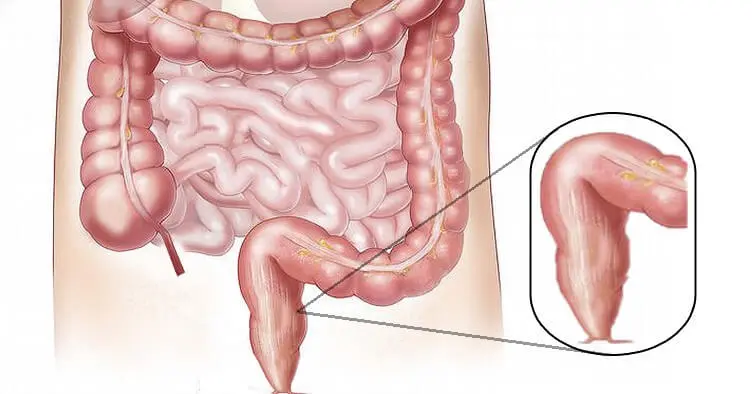- Home
- Medical news & Guidelines
- Anesthesiology
- Cardiology and CTVS
- Critical Care
- Dentistry
- Dermatology
- Diabetes and Endocrinology
- ENT
- Gastroenterology
- Medicine
- Nephrology
- Neurology
- Obstretics-Gynaecology
- Oncology
- Ophthalmology
- Orthopaedics
- Pediatrics-Neonatology
- Psychiatry
- Pulmonology
- Radiology
- Surgery
- Urology
- Laboratory Medicine
- Diet
- Nursing
- Paramedical
- Physiotherapy
- Health news
- Fact Check
- Bone Health Fact Check
- Brain Health Fact Check
- Cancer Related Fact Check
- Child Care Fact Check
- Dental and oral health fact check
- Diabetes and metabolic health fact check
- Diet and Nutrition Fact Check
- Eye and ENT Care Fact Check
- Fitness fact check
- Gut health fact check
- Heart health fact check
- Kidney health fact check
- Medical education fact check
- Men's health fact check
- Respiratory fact check
- Skin and hair care fact check
- Vaccine and Immunization fact check
- Women's health fact check
- AYUSH
- State News
- Andaman and Nicobar Islands
- Andhra Pradesh
- Arunachal Pradesh
- Assam
- Bihar
- Chandigarh
- Chattisgarh
- Dadra and Nagar Haveli
- Daman and Diu
- Delhi
- Goa
- Gujarat
- Haryana
- Himachal Pradesh
- Jammu & Kashmir
- Jharkhand
- Karnataka
- Kerala
- Ladakh
- Lakshadweep
- Madhya Pradesh
- Maharashtra
- Manipur
- Meghalaya
- Mizoram
- Nagaland
- Odisha
- Puducherry
- Punjab
- Rajasthan
- Sikkim
- Tamil Nadu
- Telangana
- Tripura
- Uttar Pradesh
- Uttrakhand
- West Bengal
- Medical Education
- Industry
Epinephrine in the submucosal injectate of no benefit for colorectal Endoscopic mucosal resection: study

Using epinephrine in the submucosal injectate for Endoscopic mucosal resection increases postprocedural pain, which prolongs recovery time and may also cause diagnostic confusion, suggests a recent study published in the Gastrointestinal Endoscopy.
Endoscopic mucosal resection (EMR) is an outpatient procedure that lets physicians remove tumours just beneath the gastrointestinal (GI) wall without surgery. Using an endoscope — a flexible, tube-like instrument — our gastroenterologists (physicians who specialize in treating the GI tract) can see inside the body with a high degree of detail. At the same time, they can remove growths such as upper GI or colon polyps that might otherwise require surgery.
EMR is the first-line therapy for colorectal laterally spreading lesions. Some colonoscopists include epinephrine in the submucosal injectate, which we observed increased post-procedure discomfort. Our aim was to determine whether the inclusion of epinephrine in the submucosal injectate increases postprocedure pain after EMR.
Researchers performed a randomized, controlled, double-blind trial comparing epinephrine in submucosal injectate versus injectate alone for abdominal pain at 30 and 60 minutes after EMR.
The Results of the study are:
The mean polyp diameter in both arms was >40 mm. There were no differences in procedure times or amounts of fluid injected. Mean pain was higher on a visual analog scale in the epinephrine group at 30 minutes (47 vs 14, P = .022) and at 60 minutes (44 vs 13, P = .035). Recovery room stay was longer in the epinephrine group (68 vs 53 minutes, P = .034).
Thus, the researchers concluded that epinephrine in the submucosal injectate for EMR increases postprocedural pain, which could cause diagnostic confusion and prolong observation time in the recovery area.
Reference:
Impact of including epinephrine in the submucosal injectate for colorectal EMR on postprocedural pain: a randomized controlled trial by Douglas K. Rex, et al. published in the Gastrointestinal Endoscopy.
https://www.giejournal.org/article/S0016-5107(21)01874-5/fulltext#
Dr. Shravani Dali has completed her BDS from Pravara institute of medical sciences, loni. Following which she extensively worked in the healthcare sector for 2+ years. She has been actively involved in writing blogs in field of health and wellness. Currently she is pursuing her Masters of public health-health administration from Tata institute of social sciences. She can be contacted at editorial@medicaldialogues.in.
Dr Kamal Kant Kohli-MBBS, DTCD- a chest specialist with more than 30 years of practice and a flair for writing clinical articles, Dr Kamal Kant Kohli joined Medical Dialogues as a Chief Editor of Medical News. Besides writing articles, as an editor, he proofreads and verifies all the medical content published on Medical Dialogues including those coming from journals, studies,medical conferences,guidelines etc. Email: drkohli@medicaldialogues.in. Contact no. 011-43720751


